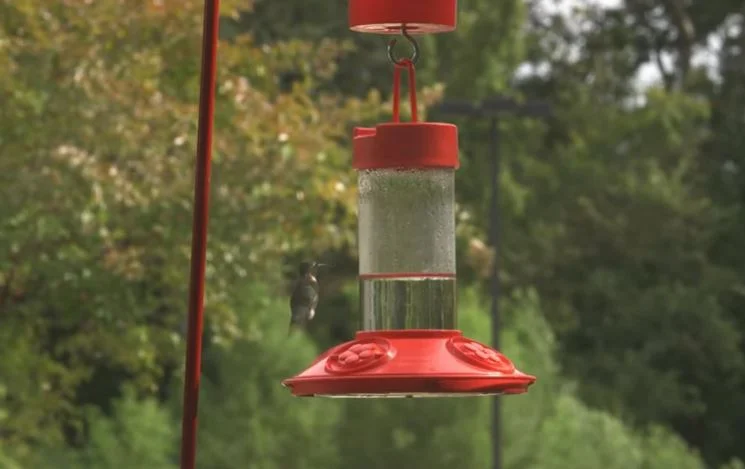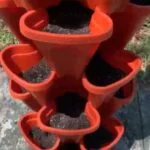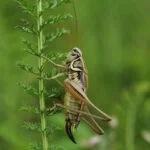Have you had enough with ants all over your hummingbird feeder? Ants are fascinating insects that have been part of our lives since, well, quite frankly, forever. Though most of the time they go unnoticed, there are other times when they become an annoyance. The reason why we’ll be telling you how to keep ants out of hummingbird feeders.
While you may not find many people having ants as pets, ants are all around us, especially if there’s something they can feed of. Once we encounter them, we always try to get rid of them, especially when they make their way to places they shouldn’t like a hummingbird feeder.
However, ants love to munch on nearly everything, and your birds feeder isn’t the exception. So while they don’t represent a massive threat to people or your garden, ant infestations may pose their risks. Whether you find this insect annoying or not, it’s always a good idea to learn more about them and how to get rid of them in case an infestation gets out of hand. Continue reading and discover different ways on how to keep ants out of hummingbird feeders.
How to Keep Ants Out of Hummingbird Feeder
Check out different ways to keep ants out of hummingbird feeders:
Step 1: Hang your hummingbird feeder with fishing line
Give the ants a tightrope challenge with the fishing line. The fishing line is naturally skinny, even too thin for ants, and slippery on its own, so it works as an excellent deterrent for ants trying to climb to the hummingbird feeder.
You’ll need to make sure the fishing line is strong enough to hold up the weight of your feeder and the resting importance of a hummingbird feeding on its nectar. Then, use the fishing line to hang the hummingbird feeder where you wish.
Recommended Product
Anezus Fishing Line Nylon String Cord
Anezus fishing line comes with one roll of 0.3mm 131 yds transparent fishing cord perfect for hanging decorations and beading supplies.
The fishing line is made of monofilament nylon that is strong and durable to hang decorations like tealights, cosplay decorations, party decorations, ornaments, paper lanterns, crystals, etc.
The bead cord is thin and transparent, ideal for decorating your hanging ornaments.
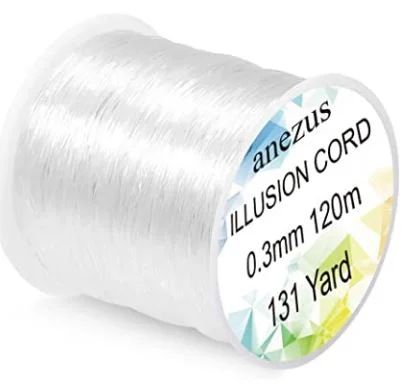
Features:
- Nylon
- Clear
- Large roll
Step 2: Install an Ant Moat
Protect your hummingbird feeder like it’s a castle with an ant moat. An ant moat is perhaps the most popular way to keep ants away from hummingbird feeders. Like a moat around a castle, an ant moat is a little body of water that protects the hummingbird feeder. The ants will hopefully get stopped in their tracks in the ant moat’s water and not make it to the nectar.
Recommended Products
Hummingbird Feeder Insect Guard
Can keep ants away from a hummingbird feeder. Very simple to use; all you have to do is hang the moat on the feeder. Then pour a little oil or water into the cup.

Features:
- Metal
- 1 x 1 x 0.1 inches
- Hummingbird Feeder Insect Guard
Hummers Galore Hummingbird Feeder Insect Guard
Keep ants and other insects out of your Bird Feeder with these Handsome Insect Guards. Red tulip appearance with top and bottom metal hooks, additionally the red will help attract hummer’s to your feeder while keeping out pesky crawling insects.
Works with Most Feeders. If pesky ants or other crawling insects are a problem. Hummer’s Galore ant moat is a must. Red tulip appearance with top and bottom metal hooks, additionally the red will help attract hummer.
Fill with water Hummer’s Galore Ant Moat has a capacity of 6 oz. It may be hung above any hummin. Water evaporates, so remember to refill your moat.
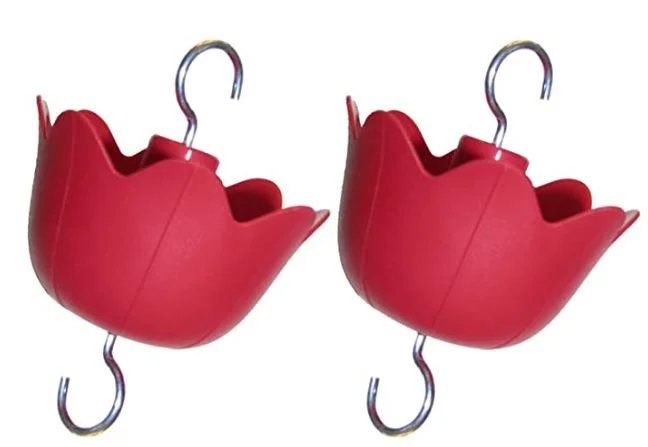
Features:
- Hooks
- Metal
- Red color
- 4 x 4 x 4 inches
Common Questions About How to Keep Ants Out of Hummingbird Feeder
Will ants in a hummingbird feeder hurt the birds?
Dead, decaying insects in your nectar probably aren’t best for the hummingbirds. Some ants have formic acid venom, which may, at the very least, change the taste of the hummingbird food.
Do ants kill hummingbirds?
It is unlikely at your feeder that ants will kill a hummingbird. But with the right kind of aggressive ant species, especially those that can inflict a nasty bite, if an army came upon an injured or sick hummingbird, it would be possible for them to kill it.
How do ant moats work on a hummingbird feeder?
An ant moat is a trap filled with water and prevents the ants from crossing over to the hummingbird nectar ports when they climb onto the feeder.
What do you put in an ant moat for a hummingbird feeder?
It is highly recommended to put the dried mealworms in a tray feeder hung from a metal hook and added an ant moat above the feeder. As long as the trench is filled with water, ants won’t cross it.
How do you make an ant guard for a hummingbird feeder?
Tools:
- 2 Eye hooks 3/16-inch diameter, 4-inches long
- Two 3/16-inch nuts
- Two 3/16-inch washers
- One 3/16-inch coupling nut to join the eye hooks
- 1 Plastic cup 3-inch diameter
Directions:
- Drill a hole in the middle of the plastic cup. Use a drill bit the same diameter as the eye hooks.
- Place the nut on the lower eye hook as close to the eye as it can go. Add the washer.
- Add a dab of Silicone Sealant to the underside of the cup where the washer will touch.
- Add a dab of Silicone Sealant inside the cup around the hole where the second washer will rest.
- Thread the lower eye hook up through the cup. The lower nut and washer will press against the cup (but don’t snap the plastic!).
- Place the second washer down the eye hook to the bottom (inside) of the cup. Then add the second nut and tighten. You may need to use a wrench -gently.
- Attach the coupling nut to the lower eye hook, with half the nut still available.
- Insert the top eye hook into the coupling nut.
- Allow Silicone Sealant to dry (most take 2 hours). Then hang moat from shepherd’s hook and hang hummingbird feeder from the canal. And say goodbye to the ants.
Do ants bother hummingbirds?
Mainly, ants can prevent hummingbirds, which happens when they arrive by the thousands and swarm over your feeders. Or it’s common for ants to get into the feeding ports and die inside, which can contaminate your nectar! And even though hummingbirds eat insects, they don’t eat ants.
Additional Tips on How to Keep Ants Out of Hummingbird Feeder
- Keep ants on their toes by relocating your hummingbird feeder to different parts of your garden. This will prevent ants from coming back for more.
- If they smell sweetness, the ants will come. Make sure you monitor your hummingbird feeder for any cracks or leaks.
- Heat can cause feeders to expand and cause cracking, so check often, especially in warmer weather. You may not want to place your feeder directly in the sun for this reason.
- Repel ants with plants. Ants detest the scent of bay leaves, so placing or rubbing bay leaves on or around your hummingbird feeder is an excellent way to keep ants away.
- Ants aren’t so great in the water. If you are lucky enough to have a fountain or a pond, or any body of water in your garden, this would be a great place to position your hummingbird feeder.
Read: Stackable Planters

